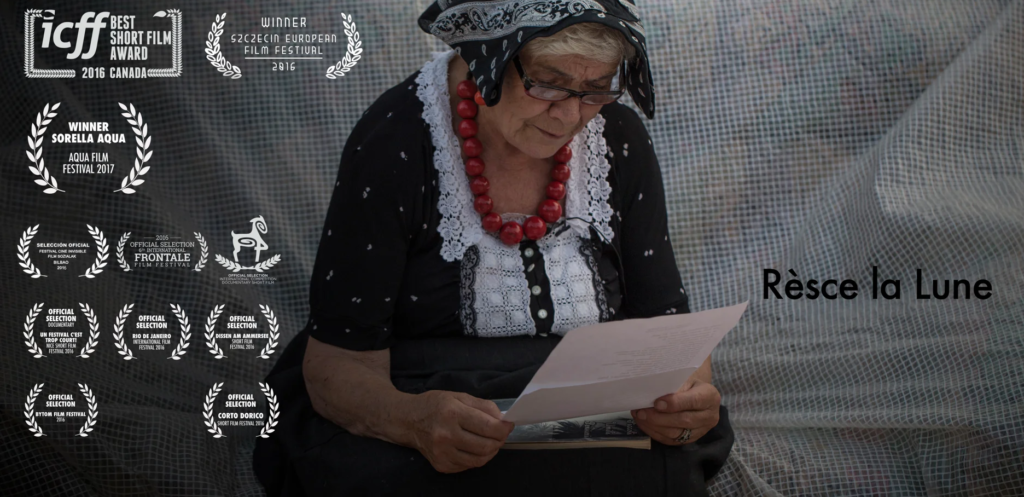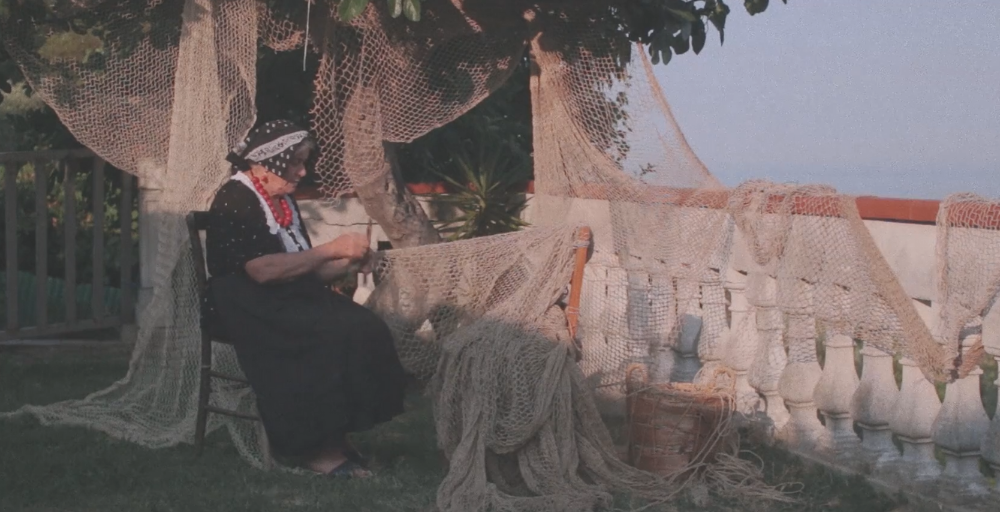2019 saw the 2nd year of our annual film competition: 16 Days 16 Films. Co-created by UK SAYS NO MORE and Modern Films, the competition is now run in partnership with the Kering Foundation and Chayn. We are honoured to feature finalist Giulia Di Battista, who shares her motivations behind her film Rèsce La Lune.
When I found out that I was going to be part of the 16 Days 16 Films competition with my short documentary Rèsce La Lune, I couldn’t have been happier. It was powerful and touching to be part of such an initiative, a campaign which not only is trying to highlight female directors, but also actively engages in activism for violence against women. Such problems have always sadly existed, however, if there really is a time in which it is important to speak loudly altogether, it is now. Now, more than ever probably, women are starting to gather up and fight against something which we cannot ignore any longer.

Prelude
Vittoria, the protagonist of Rèsce La Lune, is an old woman from San Benedetto del Tronto, my small hometown in Italy. She is one of the last women who make fishing nets, an old profession that once used to be vital for my hometown, which is a sea village. I ran into her story by chance, and I was overwhelmed by it. When she was young she fell in love with a guy she met during a carnival. They dated for some days, but when she discovered that this guy was from the upper class, her dream of love came to an end. At the time, it was impossible for someone humble to love someone from the upper class.
But this was just the prelude to her story. After some time in fact, she got married to another man, a man who later on turned out to be a possessive, violent husband. He became someone who would treat her as property, someone who would humiliate her throughout her whole life.
And, for Vittoria, the memory of that first love, the impossible one, became a sort of anchor to help her live through the abusive marriage she had to deal with.
The Nets Vittoria Crafts
I was in a delicate moment in my life, and I could identify with Vittoria, but, what overwhelmed me most about her story, beside the strength she is still keeps when she talks about her past love, was to recognize even myself in her words and realize how universal this story was.
How many women have I met who have had a similar path? Many, too many. And sadly, not only from her generation, or the one after. And if I met so many, what about all the other women? How many women do each of us know have lived a toxic, unhealthy, psychologically/physically violent relationship?
Once she opened up to me, Vittoria talked about her situation as if it were the most natural thing in the world, as if she were talking about common things in daily life. So another even scarier question came to my mind: do we even recognize that these behaviours are abusive? Do we even see this things as bad or we are still so stuck in this kind of pattern that everything can pass unnoticed?
We all grew up in a society full of prejudices, of rules of how a woman should be, how a man should act, all the things that form the net we are all trapped into. Like the nets Vittoria crafts.
From all of these thoughts came the urge to tell her story through images, trying not to judge what happened but to simply give her the voice she always denied to herself.
I don’t condemn her husband, although for sure I am not OK with his acts. I like to think that he is a victim too, victim of a system and traditions that formed him in this way, because otherwise “you are not a man”.
Art as a Message
Nowadays, my hope is that we might now be living in a different era. An era where, on one hand, women are raising their voices, and, on the other, men also do not need to prove their masculinity or their power because those stereotypes are falling down, leaving them free to ask themselves the question, “who do I want to be?” rather than “am I man enough?”
I know very well that this is not enough for things to be OK and for abuse to stop. I know very well we will still have to fight. And I think that the base of this fight should be one: the education. We should educate more and more, not only women but also men, that we are equal, that love is not a matter of possession, that there is no master and servant. That we all are human beings.
Art can be a way to spread the message, because when we deal with art, it can touch the deepest points of our intimacy. That’s why I hope more initiatives such as 16 Days 16 Films will come, not only to connect women in the cinema industry, but also to keep giving voices to those who are not heard and to relentlessly try to reach everyone’s emotions.
16 Days 16 Films finalist, Giulia Di Battista, is a filmmaker from Italy.
You can follow her work here



